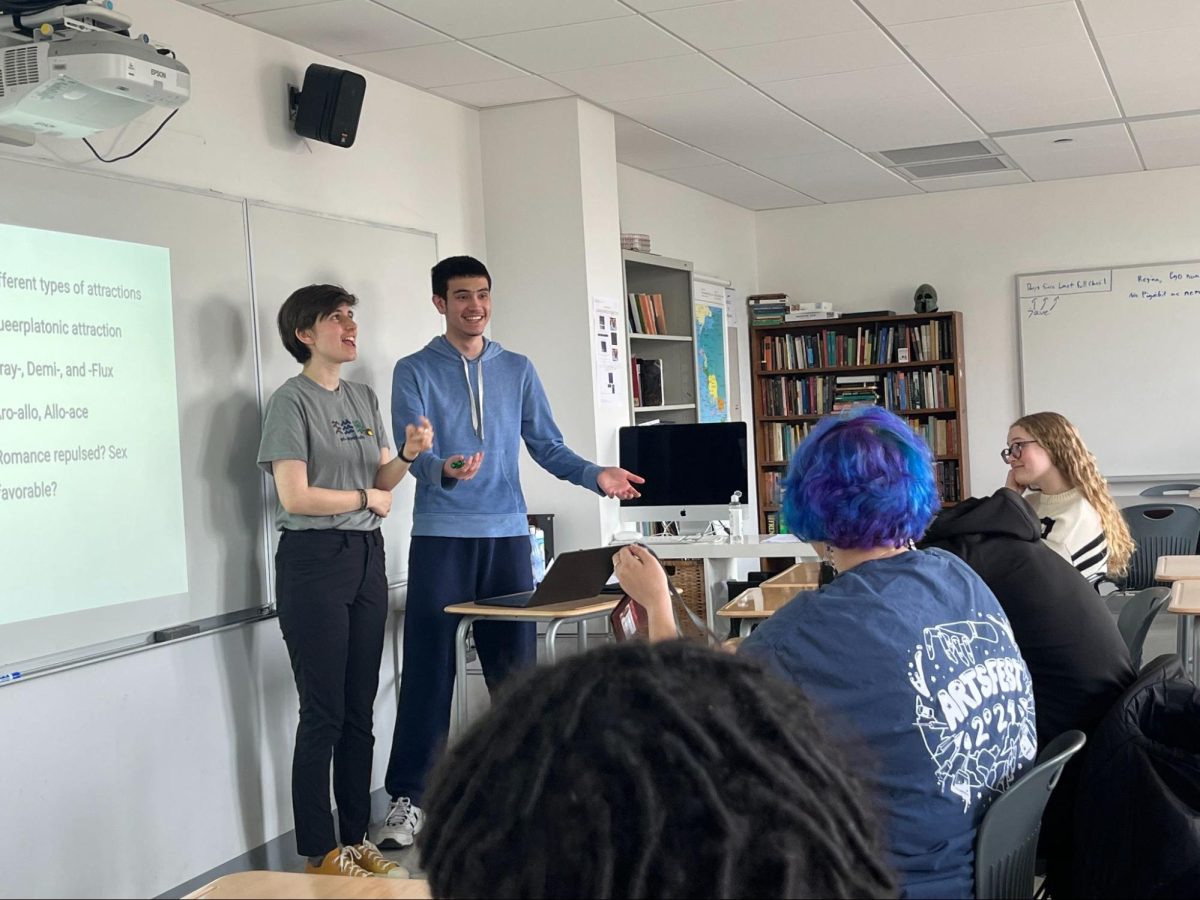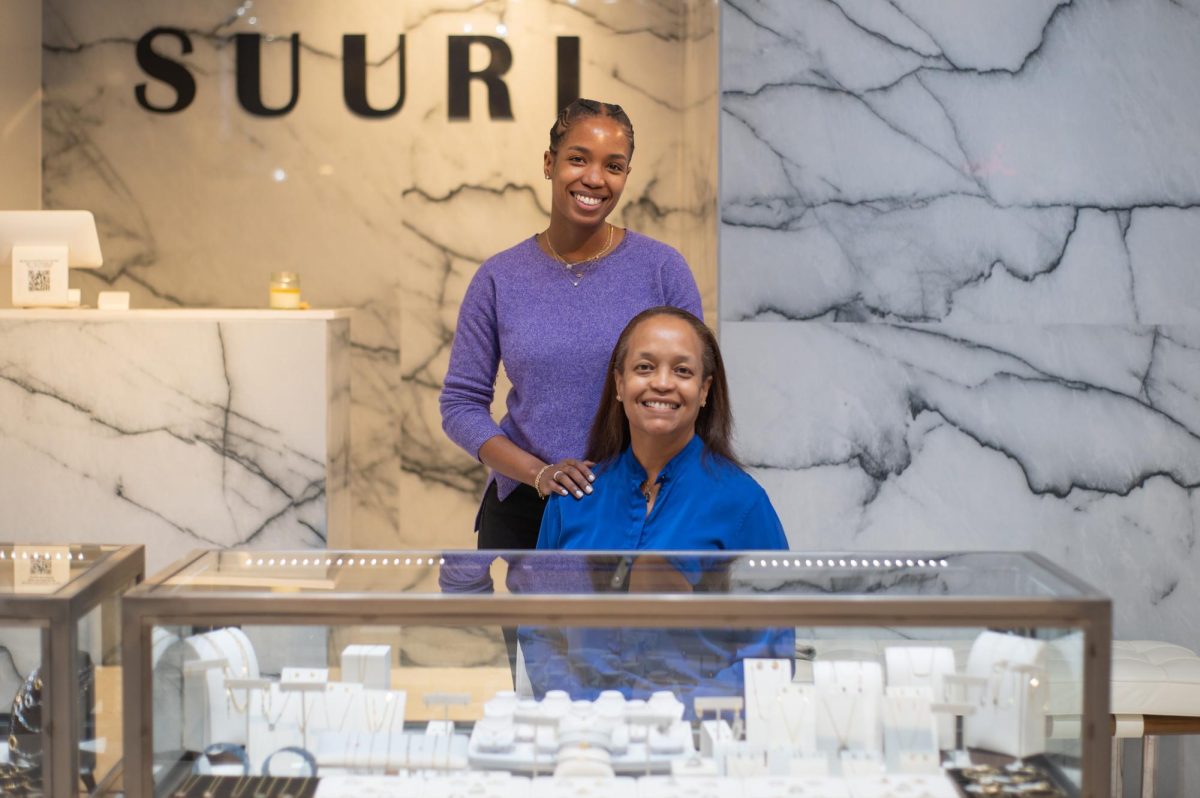In recent times, queerness as a whole has moved toward widesteam acceptance. Despite this, several queer identities are often swept under the rug and generally ignored by wider audiences. Identities on the aromantic or asexual spectrum, polyamorous identities, and many more are rarely explored within media and are thus rarely understood. Spectrum hopes to help change that.
In April, Spectrum leaders Alex Fogel and Aaron Moss used their Social Justice Week workshop to approach problems from a positive perspective, expanding student perspectives and helping students better understand themselves and the people around them. The workshop aimed to inform attendees through the celebration of the underrepresented identities that the workshop centered around.
“Distinctly, when we first floated around this idea as the Spectrum workshop, it was more negative, talking about problems,” Aaron said. “It ended up being less about having a difficult conversation and more presenting various facets that don’t get talked about very often.”
The workshop had a specific focus on the identities that lack representation within mainstream media due to the fact that they could appear unfamiliar or confusing to a general audience.
“You can sell a show about various queer identities to a lot of people,” Aaron said in an interview, “but it’s going to be hard to sell a show that really focuses on, for example, aroflux identities (people who feel romantic attraction at some points, but not others), because it’s something that people aren’t familiar with and something they may not necessarily be interested in.”
The workshop helped emphasize some of the problems found with queer representation, such as the sanitized or dumbed-down characters and conflicts in works like “Love Simon,” while making sure to shed light on the positive representation found in relatively niche media, such as the polyamorous relationships in shows like “What We Do in the Shadows.”
Aaron said the negative examples were important to illustrate and discuss the problems with mainstream queer representation.
“But also, in discussing queer identities that don’t get mainstream representation, it’s useful to think about the places they could have gotten it,” he said.
Overall, the goal of the workshop was not only to help give voice to identities undermined by mainstream media, but also to help people better understand the labels that describe them.
“I’m hoping that some people will take it upon themselves to research these identities more, or maybe they’ll think about whether it means something to themselves, or someone they know, or a character they like,” Alex said. “Just being able to see yourself in a character and having widestream [representation] is just like a wonderful thing, no matter what sort of identity modifier is taking place.”





















































